There’s thing called a hartal today. Its kinda like a snow day but instead of traffic accidents due to icing, you get burnt cars due to mob rules. But the two are indistinguishable to me coz the outcome is the same. No work, late to work, or dangerous to go to work. Snow, mobs — they all make the same noise when they beat on your car.
To those of you outside Bangladesh or totally ignorant, a hartal is a general strike called by a political party to protest something. They force everyone NOT to go to work. I know, right? AWESOME!!! Except it screws with the economy. Like think about it — 3 hartals a year and GDP (or at least productivity) is down by 1% for the year.
It makes you think — given the rampant energy crisis (-2% GDP), the infrastructure/transportation problems (-1% GDP), corruption (-2% GDP), and a whole whole host of other problems (-1% GDP), Bangladesh’s GDP growth rate of 6% could have been at least 10% easily. Of course I’m no economist, so these numbers are just estimates or figures I’ve read, heard from others, or totally made up, but they make sense — I mean it takes half a day to go from one office to another, and electricity is gone for up to 12 hours a day during the peak season.
But back to the hartal. This latest hartal was called to protest the fact that the opposition leader got kicked out her house in the army cantonment and then the Supreme Court wouldn’t hear the case again after the High Court heard it bla bla bla. Yea, you heard right. Its like a bunch of 5 year olds at recess. “Well he said nya nya nya.” “I know you are but what am I?”
A few days ago, my friend from the US facebooks me and is like “Dude, are you alright? I heard about all the shit going down.” I was basically like “Huh? Whaaaa?”, at which time, he pointed me to this very well-written article about the politics of hate in Bangladesh (but aren’t all Economist articles well written?). Sadly, that subject has become so passe, that it didn’t even register as a potential tinderbox or cause of international concern, but just as another day in the life.
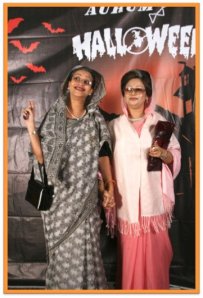
I'm not the only one who thinks that the two ladies who rule this country are a) a joke and b) scary
Really quick background on the political situation here. Its kinda like the US. Got two main parties — the liberal idiots (Awami League) and the conservative nasties (BNP). The liberal idiots are in power right now, and enjoy quite a comfortable margin in terms of the popular vote. The conservatives kinda screwed themselves by allying with the religious nutsoes, as well as getting embroiled in inter-party rivalries which further weakened them. I think thats the gist of it — I ain’t no expert nor do I wanna be. Needless to say, the parties are more similar than different. One just hates India and the other one hates Pakistan.
The current government’s (liberal idiots) greatest achievement during its current term has been to rename the airport. It used to be named after the now-dead leader of the conservative party, but now the liberals came up with the genius idea of naming after a religious icon so that the other party couldn’t rename it again when they come to power. The Awami League’s second greatest achievement this time around is to kick the widow of the dude-the-airport-was-named-after out of her house in the army cantonment. Incidentally the widow is the leader of the BNP right now. The Awami League is also led by a woman — Bangladesh’ current prime minister — who’s daddy (the founder the nation) was assassinated by the BNP in the 70s (although that may not be the most neutral version, its generally seen as the truth).
So basically its a case of revenge for my daddy vs. my hubby was the greatest. This is what happens when you let women lead — all their political agendas boil down to the men in their lives. Especially in conservative cultures, ‘coz they ain’t getting any, to boot. It must be at least 30 years since either of these ladies have done the horizontal mambo (I’ll probably get arrested for that comment).
Its like my dad — he’s still trying to hold on to political realities from 40 years ago. To him, these are the issues that matter. My sister and I keep telling him — WE DON’T CARE. He writes these articles about the liberation war in 1971 that no one can relate to except his senile friends — then they get drunk and discuss how contemporary their school of thought is.
And most politicians, unfortunately, think like him — coz they OLD! Bangladesh is still a young country — we don’t have hundreds of years of a democratic agenda vs. a republican one. Its all about who’s family did what to who’s family 20 years ago.
But to our generation, its issues like electricity, roads, the environment, and education that really matter. Get things done so we can live more comfortably — so that we can make more money — so that our kids can have a future (my imaginary kids). Or else we outta here. I’m already planning a move to Bangkok — I just don’t see a way out of this never-ending political cycle of bullshit.
What we need is a benevolent dictator. A leader educated in the West, who can get things done without red-tape and corruption. A leader like… ME?
Until then — SNOW DAY!
Incidentally, I’m at work on a snow day. Sucks to be me.
Filed under: Economy, Politics, bangladesh, economy, hartal, Politics, strike
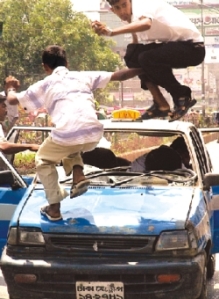


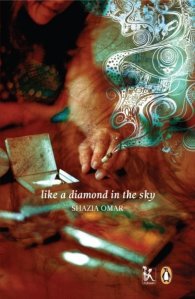


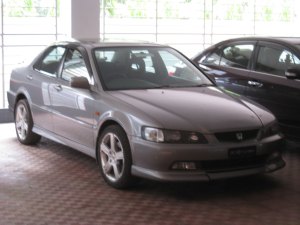
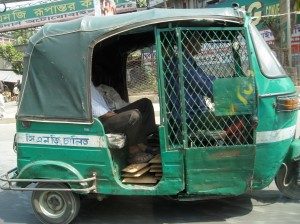
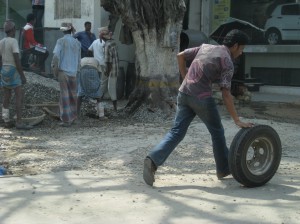
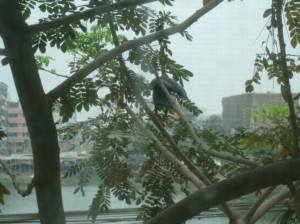
Recent Comments